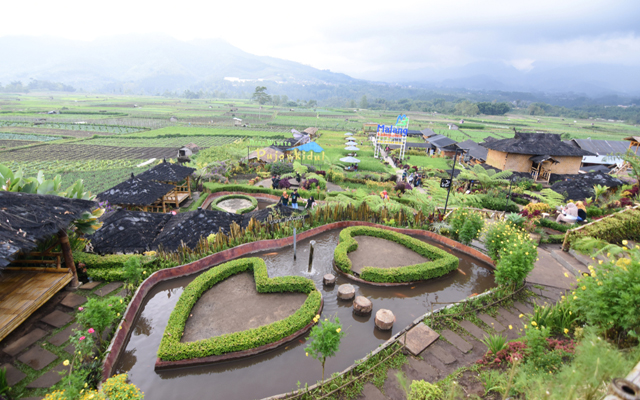Tourism villages have the potential to become a key engine of Indonesia’s tourism growth and spur the development of small- and medium enterprises across the archipelago, said the country’s industry players.
Speaking at a recent national dialogue on tourism organised by the Indonesian Hotels and Restaurants Association (PHRI), Irfan Wahid, coordinator of Quick Win Team at the Coordinating Ministry of Maritime Affairs and Investments, said that a tourism village strategy could become a powerful tool in the development of the 10 New Bali’s in Indonesia.

The strategy, which Irfan recently proposed to president Joko Widodo, encourages the government to annually create 1,000 digital-based tourism villages across the archipelago to boast culture, ecotourism destinations, as well as agricultural, horticultural and aquatic products.
He said: “A four-legged table will crack if a very heavy load is placed on it. But if it has a thousand legs, it will be much stronger. For me, a tourism village is a leg. The more, the merrier. A tourism village will empower small and medium enterprises. We target one village to focus on producing one export-oriented commodity.”
An example is Pujon Kidul in Malang, East Java, which after becoming a tourism village attracted 241,525 tourists in 2018, up from 619 in 2013. Homestays also rose from 178 properties in 2013 to 758 in 2018, with occupancy rates increasing from 10 per cent to 35 per cent. The Pujon Kidul village contributed 5.3 billion rupiah (US$379,000) in tourism revenue in 2018, up from 34 million rupiah in 2013.
“The more tourism villages we have, the more tourist spots we can develop together,” Irfan said.
In support of the initiative is PHRI’s deputy chairman Maulana Yusran, who believes that tourism villages can showcase the uniqueness of each village and attract more visitors.
However, Maulana expressed concern over the uneven playing field between hotels and homestays, and exhorted the government to exercise greater regulation in the accommodation sector to ensure that all players abide by regulations.
There should be stricter enforcement of homestay owners having to obtain a Tourism Business Registration License (TDUP), said Maulana, as it is a regulation that hospitality players have to comply with because it also entails safety measures. As such, he raised concerns about the safety of tourists who stay in unlicensed homestays.
“The government’s weak law enforcement (around TDUP) has resulted in unfair competition in the accommodation sector. Today, big cities like Jakarta and Bali are oversupplied with homestays, including the unlicensed ones which do not pay a tax that the ministry already stipulated in the regulation,” he said.
Umberto Cadamuro, COO inbound of Pacto, said that the government should prevent oversupply of homestays to prevent diminishing of occupancy rates. But homestays will not disadvantage hotels, he added, because they both have different target markets.
He opined that the Indonesian government should train homestay owners in tourism villages to go digital, and help facilitate partnership deals with accommodation booking platforms like Booking.com and Airbnb so that visitors can make online reservations.
Umberto said that creating homestay facilities was easy but developing a tourism village required careful planning. Therefore, he recommended relevant stakeholders to hire consultants to analyse the target market of each village and to preserve and protect the culture of the villages.
Despite the challenges, he said the initiative to grow homestays and tourism villages across Indonesia “is a feasible and very good idea”.




















